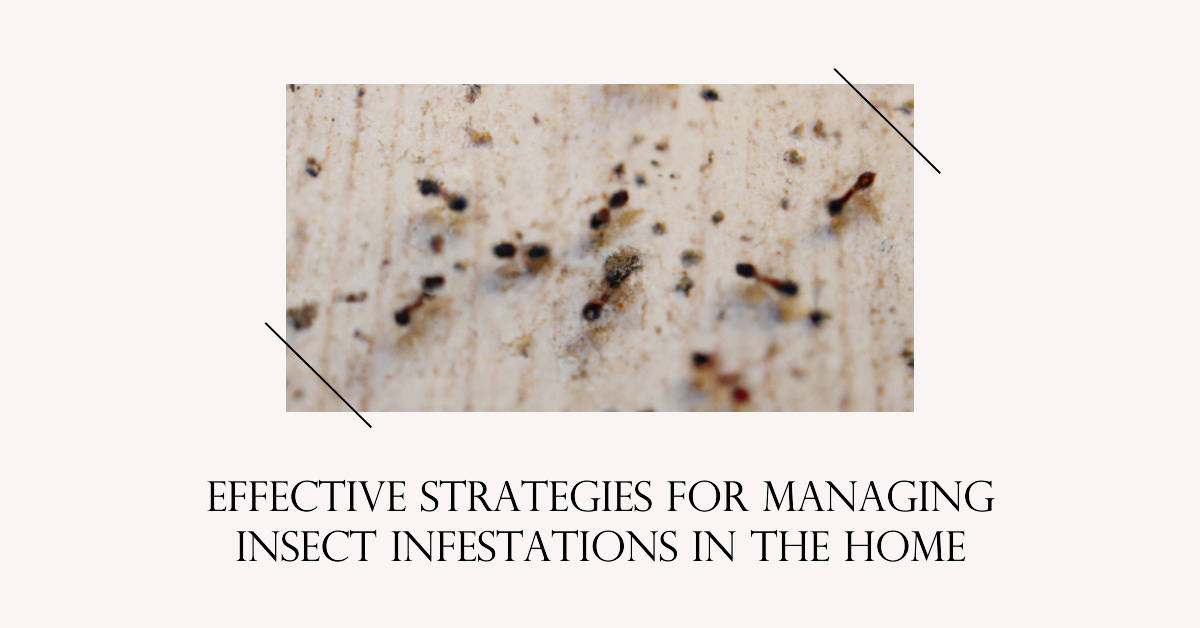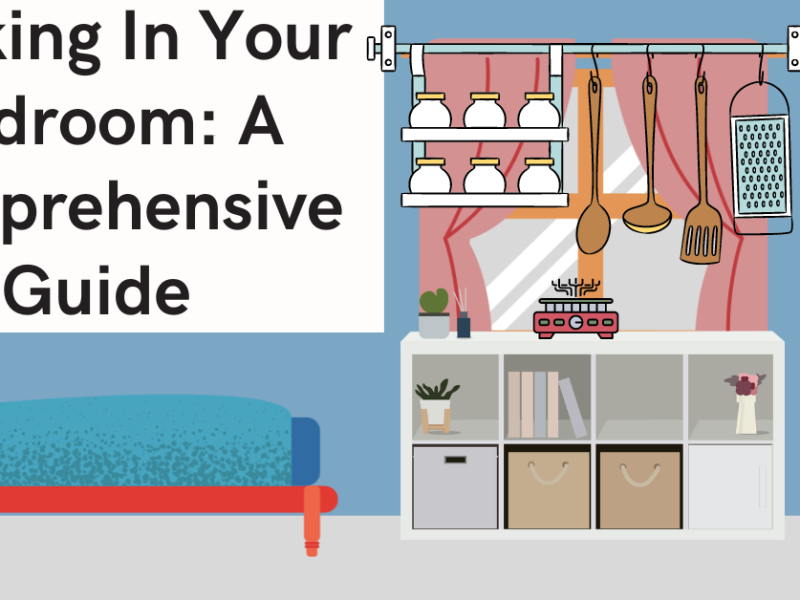I am a well-rounded expert with proficiency in several fields. My experience spans from being a dedicated chef and homemaker. As a passionate homesteader, I’ve honed my skills in sustainable living and animal care, ensuring a holistic approach to everything I undertake. Email me or Txt: (# removed due to spam, please email)
Insects are a common household problem that can cause damage to our homes and threaten our health. However, with the right strategies in place, you can effectively manage and prevent insect infestations in your home.
In this article, we will explore effective strategies for managing insect infestations in the home, including prevention and treatment methods, natural remedies, and when to call a professional.

Common Insect Infestations in the Home
There are many types of insects that can infest our homes, including ants, cockroaches, termites, bed bugs, and more. Each type of insect poses unique risks and can cause different types of damage.
For example, termites can cause structural damage to your home, while bed bugs can cause health problems and discomfort.
Some insects, such as mosquitoes and flies, can carry diseases and pose a risk to human health. Others, like pantry pests, can contaminate food and make it unsafe for consumption.

Prevention Strategies
One of the most effective ways to manage insect infestations is by preventing them in the first place. There are several steps you can take to prevent insect infestations in your home, including:
- Keep a clean house: Regularly cleaning your home, especially in areas where pests are likely to thrive, can help prevent insect infestations. Make sure to clean up spills and crumbs, take out the trash regularly, and vacuum carpets and rugs frequently.
- Seal cracks and openings: Insects can enter your home through small cracks and openings, so it’s important to seal these areas. Use caulk or weatherstripping to seal gaps around doors and windows, and use mesh screens on doors and windows to keep insects out.
- Proper food storage: Insects are attracted to food, so proper food storage is essential for preventing infestations. Keep food in sealed containers, and don’t leave food out on counters or tables.
- Regular inspections and maintenance: Regularly inspecting your home and addressing potential issues can help prevent insect infestations. Check for leaks, standing water, and signs of damage, and address these issues quickly to prevent pests from entering your home.
- Use insect-repelling plants: Some plants, such as lavender, marigolds, and mint, can help repel insects. Consider planting these around your home or incorporating them into your indoor decor to help deter pests.

Treatment Strategies
If you do discover an insect infestation in your home, there are several treatment strategies you can use to effectively manage the infestation. The right treatment method will depend on the type of insect and the severity of the infestation. Some effective treatment strategies include:
- Chemical treatments: Chemical treatments, such as insecticides, can effectively manage many types of insect infestations. However, it’s important to follow instructions carefully and use these treatments safely.
- Non-chemical treatments: Non-chemical treatments, such as traps and baits, can be effective for managing some types of insect infestations. However, these treatments may take longer to be effective and may not work as well for severe infestations.
- Integrated Pest Management (IPM): IPM is an environmentally friendly approach to pest control that focuses on a combination of prevention, monitoring, and control methods to manage insect infestations effectively and safely.

Natural Remedies and DIY Solutions
If you prefer to avoid using chemicals in your home, there are several natural remedies and DIY solutions that can be effective for managing insect infestations. Some popular options include:
- Essential oils: Many essential oils, such as peppermint and eucalyptus, have insect-repelling properties. You can use these oils in a diffuser or mix them with water and spray them around your home.
- Vinegar: Vinegar can be used to repel many types of insects, including ants and fruit flies. Mix vinegar with water and spray it in areas where insects are likely to be.
- Baking soda: Baking soda can be used to kill cockroaches and other insects. Mix baking soda with sugar and sprinkle it in areas where insects are likely to be.
- Diatomaceous earth: This natural powder can help control a variety of insect pests, including ants, fleas, and bed bugs. Sprinkle diatomaceous earth around the affected areas to help manage infestations.
When to Call a Professional
While many insect infestations can be managed with DIY solutions and treatments, there are some situations where it’s necessary to call a pest control professional.
If you have a severe infestation or if the infestation is causing damage to your home, it’s important to call a professional to address the issue.
A pest control professional can assess the situation and determine the best treatment method for your specific infestation.
They can also help you prevent future infestations by identifying potential problem areas in your home and providing guidance on how to address them.

Conclusion
Insect infestations are a common household problem that can cause damage to our homes and threaten our health. However, with the right strategies in place, you can effectively manage and prevent insect infestations in your home.
By implementing prevention strategies, choosing the right treatment method, and considering natural remedies and DIY solutions, you can effectively manage and prevent insect infestations in your home.
And if all else fails, don’t hesitate to call a pest control professional to address the issue. With these effective strategies in place, you can maintain a pest-free and healthy home.



